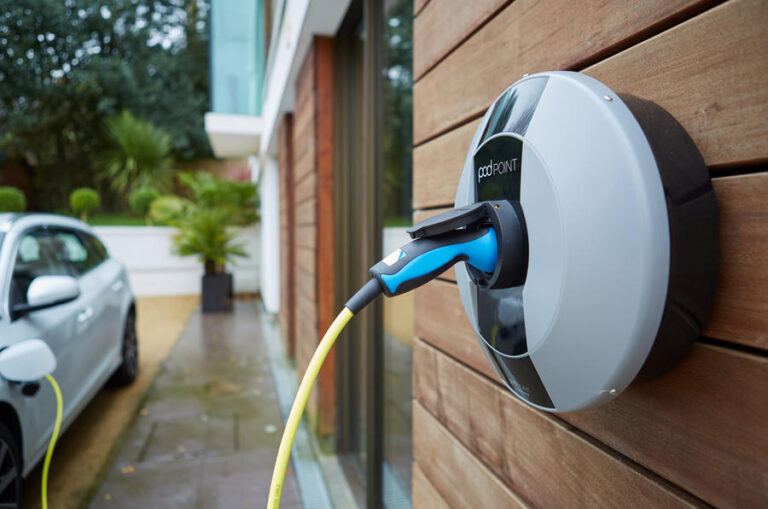Most wallbox units charge at 7kW, although there are simpler and cheaper chargers that charge at slower speeds of around 3kW.
The biggest caveat for home charging is that you need access to a driveway, garage or some other form of off-street parking close to your house, as you can’t stretch a charging cable across roads or footpaths.
How much does it cost to install an electric car home charger?
Prices for home chargers depend on the desired charging speed, plus any ‘smart’ features you might be after.
Basic 3kW slow chargers start at around £100, whereas you’ll need around £300 for a faster 7kW unit. ‘Smart’ units that feature wireless control via a smartphone app are anything between £450 and £1000.
On the whole the cost of fitting is included in the price, but there may be an extra charge if significant changes need to be made to your household wiring.
Keep an eye on major car manufacturers – some offer a free wallbox and fitting when you purchase one of its EVs, so it’s worth looking at what offers are out there.
What is the wallbox grant?
To encourage drivers to switch to EV, the government is offering financial incentives through its OZEV (Office of Zero Emissions Vehicles) department.
If you buy a new EV, then you’ll currently qualify for a grant that pays for 75% of the price and installation cost of a wallbox, up to a maximum of £350. Currently, you can apply for a grant for each EV you own, although this is limited to just two vehicles.
However, as of April 2022 the government changed the eligibility criteria, meaning most homeowners with off-street parking were no longer able to apply for the grant.
Instead, the incentive is now limited to homeowners living in a flat or apartment (provided they also have off-street parking), tenants of rented properties (with the landlord’s permission) and small business owners.


